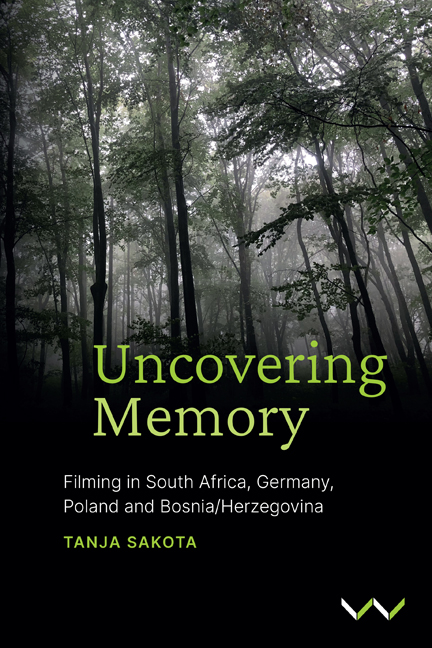Book contents
- Frontmatter
- Dedication
- Contents
- List of Images
- Foreword
- Acknowledgements
- Map of Africa and Europe
- Practice-Based Research, Teaching and Learning
- Part I Working With Students: Cape Town, Johannesburg, Berlin
- Part II Working With Peers: Constitution Hill, Johannesburg
- Part III Working With Myself: Poland, Germany, Bosnia/Herzegovina, South Africa
- Moving Forward
- Film Credits
- Glossary of Terms
- Notes
- Bibliography
- Index
Chapter 13 - The politics of remembering workshop
Published online by Cambridge University Press: 24 November 2023
- Frontmatter
- Dedication
- Contents
- List of Images
- Foreword
- Acknowledgements
- Map of Africa and Europe
- Practice-Based Research, Teaching and Learning
- Part I Working With Students: Cape Town, Johannesburg, Berlin
- Part II Working With Peers: Constitution Hill, Johannesburg
- Part III Working With Myself: Poland, Germany, Bosnia/Herzegovina, South Africa
- Moving Forward
- Film Credits
- Glossary of Terms
- Notes
- Bibliography
- Index
Summary
It's April 2018 and I am at the CARA conference (the Cilect African Regional Association).1 The theme for the conference is ‘The politics and poetics of the practices of film’. I am about to start my workshop titled The politics of remembering. As one of the convenors of the conference, we choose different venues each day to encourage thought and reflection on how we are located both geographically and historically in the pedagogies we are involved in. The aim is to generate a context for discussion about film practice in relation to questions of identity, location and history. The delegates, who are predominantly from South Africa, Nigeria, Tanzania, Cameroon, India, Finland and Sweden, create groups and are assigned student tutors/ editors who assist in creating and finalising the short films. Most of the international delegates are not familiar with the space and so ensuring that there are some South Africans in each group creates a space for more critical interaction. The groups are diverse because delegates are encouraged to work with participants from different countries. The editors of the films are primarily students from Wits.
Until this point, delegates do not necessarily realise that the venue is not just a backdrop for the conference and its discussions but is about to become the centre of our critical inquiry. In the afternoon session I invite the delegates on a one-hour tour of Number Four. The tour is conducted by a tour leader from Constitution Hill and the delegates receive the same tour guide experience as any other day visitor. I ask the delegates to take photographs of aspects of the tour that speak to them. I want to know what moves them from a visual perspective, what touches them and what evokes their sensory experience. The space is not blank, as already mentioned, it is prompted with the different exhibitions and there is some considered curation through the props. I also want to explore whether the participants will move beyond the constructed narratives or whether the curated narratives will infiltrate the films.
During the workshop I ask participants to consider the photographs that prompted a personal, political, historical or cultural memory. The aim is to find and visualise each participant's experience of the memories of the space. In other words, I want them not only to examine and photograph the space.
- Type
- Chapter
- Information
- Uncovering MemoryFilming in South Africa, Germany, Poland and Bosnia/Herzegovina, pp. 167 - 186Publisher: Wits University PressPrint publication year: 2023



